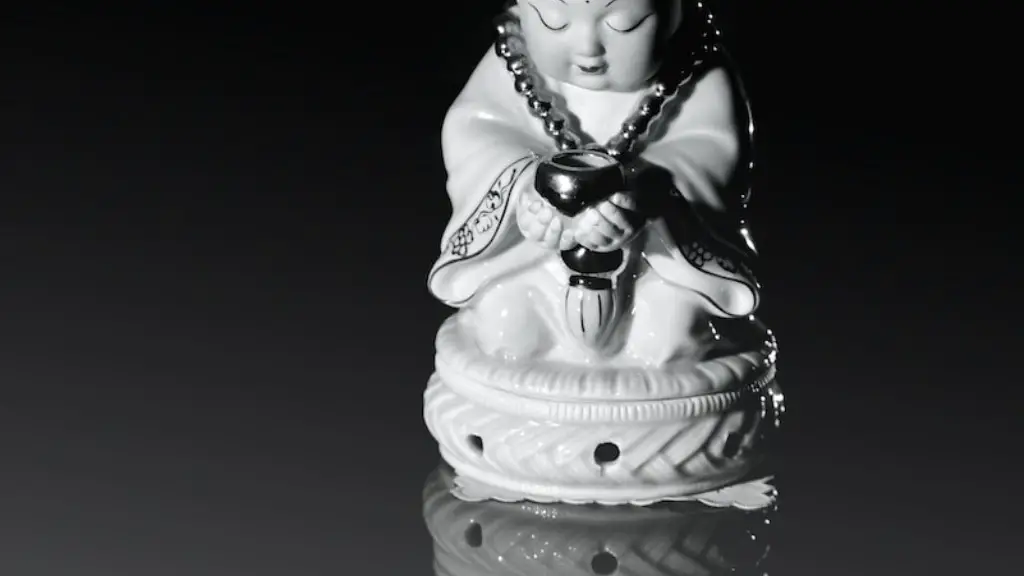Buddhism is a religion and philosophy that originated in India in the 6th century BCE. The teachings of the Buddha, Siddhartha Gautama, are based on the Four Noble Truths and the Eightfold Path. These teaching suggest that the path to liberation from suffering is through renunciation, moral discipline, and wisdom.
Buddhism teaches that there is no permanent self or soul, but that there is a continuity of consciousness that is reborn in new forms. This is in contrast to the beliefs of many other religions, which teach that there is a soul that is reborn in a new body after death.
The concept of self is an important one in Buddhism, as it is seen as the cause of suffering. The Buddhist path is one of self-transformation, in which we let go of our attachment to the ego and learn to live in the present moment.
There is no self in Buddhism.
Does Buddhism have a self?
It is important to note that when Buddhism denies the existence of the self, it is not denying the existence of the individual. Rather, Buddhism is denying the existence of a permanent, unchanging self that exists independently of the individual’s conscious experience. This is an important distinction to make, as it is the belief in a permanent, unchanging self that is at the root of much of the suffering in the world.
The anatta doctrine is one of the most important and fundamental teachings in Buddhism. It is the teaching that there is no permanent, underlying substance that can be called the soul. Instead, the individual is composed of five factors (Pali khandha; Sanskrit skandha) that are constantly changing. This doctrine is central to the Buddhist understanding of the nature of reality and the human condition.
Is there no-self in Zen Buddhism
The Buddhist doctrine of no-self is not a denial of your reality, or that of your friends and relatives. Instead, it is a middle way between such a nihilistic denial and a reification of the existence that you do have. The doctrine of no-self is a way of understanding reality that is neither too pessimistic nor too optimistic, but instead is a balance between the two.
David Hume was one of the first Western philosophers to argue that the self is a fiction. He did so on the basis of empiricism, the philosophy that holds that all knowledge is derived from experience. Hume argued that the self is not an entity that can be experienced, and therefore it does not exist. This view has been influential in subsequent thinking about the nature of the self.
What is Buddha theory of self?
The idea of self is an illusion according to Buddhism. It is not possible to separate self from its surroundings. Buddha in Lankavatara Sutra states, “Things are not what they seem… Deeds exist, but no doer can be found” (Majjhima Nikaya, 192).
Buddhism teaches that personal identity is an illusion. This means that each of us is a self that does not actually exist. The major cause of suffering is clinging to or being obsessed with this illusory self.
What does Buddhism say about self worth?
It can be difficult to believe in ourselves, especially when we feel like we’re not good enough or when we compare ourselves to others. However, it’s important to remember that we all have the potential to be happy and to live fulfilling lives. The key is to focus on our own strengths and qualities, and to remind ourselves that we are capable of great things. By doing this, we can start to build up our self-confidence and self-worth, and discover that we are truly deserving of happiness.
According to Peter Harvey, Buddhism assumes that the universe has no ultimate beginning to it and thus sees no need for a creator god. In the early texts, the nearest term to this concept is “Great Brahma” (Maha Brahma), such as in Digha Nikaya 118.
What things are forbidden in Buddhism
The five moral precepts are the core ethical code of Buddhism. They are the guidelines that Buddhists use to live a moral and ethical life. The precepts are:
1. Don’t kill living things.
2. Don’t take what is not given.
3. Don’t engage in sexual misconduct.
4. Don’t lie.
5. Don’t use drugs or alcohol.
Buddhism is a tradition focused on spiritual liberation, not on the worship of a god or gods. The Buddha himself rejected the idea of a creator god, and Buddhist philosophers have even argued that belief in an eternal god is nothing but a distraction for humans seeking enlightenment.
Do Buddhists believe in the soul?
In Buddhism, animals do not have souls, but neither do people. We are all soulless alike. According to the historical Buddha, there is no “soul” or “self” in the sense of a permanent, intrinsic, autonomous “I” inhabiting our bodies.
Nietzsche was one of the first philosophers to take a serious interest in Buddhism. However, he regarded it as a fundamentally life-denying philosophy, aimed at nothingness, which was antithetical to human existence.
What are the 4 Buddhist truths
Buddha’s teaching on the Four Noble Truths is the essence of his teachings, though much is left unexplained. The Four Noble Truths are the truth of suffering, the truth of the cause of suffering, the truth of the end of suffering, and the truth of the path that leads to the end of suffering. These truths provide a framework for understanding the human condition and the way to liberation from suffering.
Buddhism teaches that the cause of of our suffering is clinging to what we believe to be our “self” or “ego”. When we feel unsafe or uncertain, our habitual defenses arise, and we tend to cling even more defensively to our ego in an attempt to gain ground in groundlessness. In order to end our suffering, we need to let go of our attachment to our ego. This can be a difficult process, but it is essential for freeing ourselves from the cycle of suffering.
Do Buddhists believe in self-love?
The dangers of narcissism and selfishness are often overstated. To be sure, there are dangers in both these things but they should not be confused with self-love. Self-love is a healthy and natural thing while narcissism and selfishness are unhealthy and destructive.
The ancient wisdom of the Buddhists can help us to understand how to love ourselves in a healthy way. The Buddhist teachings emphasize self-compassion and this can lead us to the steps we need to take to nurture and care for ourselves.
The precepts are a set of guidelines that Buddhists use to live their lives. They are based on the belief that all beings are equal and should be treated with respect. The precepts are meant to help people develop their character and mind so that they can progress on the path to enlightenment.
Final Words
There is no self in Buddhism. The self is an illusion.
There is no single answer to this question as it is a matter of interpretation and understanding of Buddhist texts and teachings. However, it is generally believed by Buddhists that there is no permanent self or soul in Buddhism, but rather that everything is impermanent and always in a state of flux. This can be interpreted to mean that there is no “solid” self that exists independently from everything else, but rather that we are all interconnected and interdependent.



